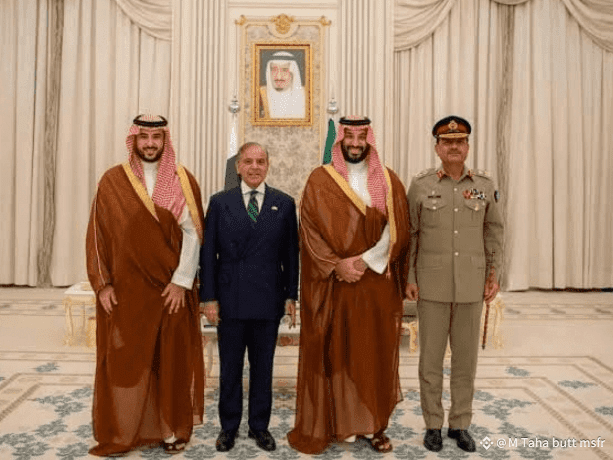Saudi Arabia and Pakistan have signed a historic mutual defense pact, strengthening their decades-long security partnership. The agreement, signed by Saudi Crown Prince Mohammed bin Salman and Pakistani Prime Minister Shehbaz Sharif, stipulates that any aggression against either country will be considered an attack on both.
Key Features of the Pact:
- Enhanced Defense Cooperation: The agreement aims to develop defense cooperation between the two countries and strengthen joint deterrence against any aggression.
- Joint Response to Aggression: An attack on either country will be treated as an attack on both, highlighting a shift from informal security ties to an institutionalized military framework.
- Comprehensive Defensive Agreement: The pact encompasses all military means, but it's unclear if it includes Pakistan's nuclear arsenal.¹ ²
Background and Implications:
- Regional Tensions: The pact comes amid heightened regional tensions, with Gulf Arab states growing increasingly wary about the reliability of the United States as their security guarantor.
- Israel's Actions: Recent Israeli attacks on Qatar have infuriated Arab countries and may have contributed to the pact, although Saudi officials emphasize it's not a response to specific events or countries.
- India's Reaction: India has taken note of the pact and will assess its implications for national security and regional stability, while reaffirming its commitment to protecting national interests.³
Significance of the Pact:
- Deepening Pakistan-Saudi Arabia Ties: The agreement stren
gthens the strategic partnership between the two countries, built on shared Islamic values, cultural ties, and strategic interests.
- Shift in Regional Dynamics: The pact could shift the strategic calculus in the complex region, where Gulf monarchies seek to stabilize ties with both Iran and Israel to resolve longstanding security concerns.
